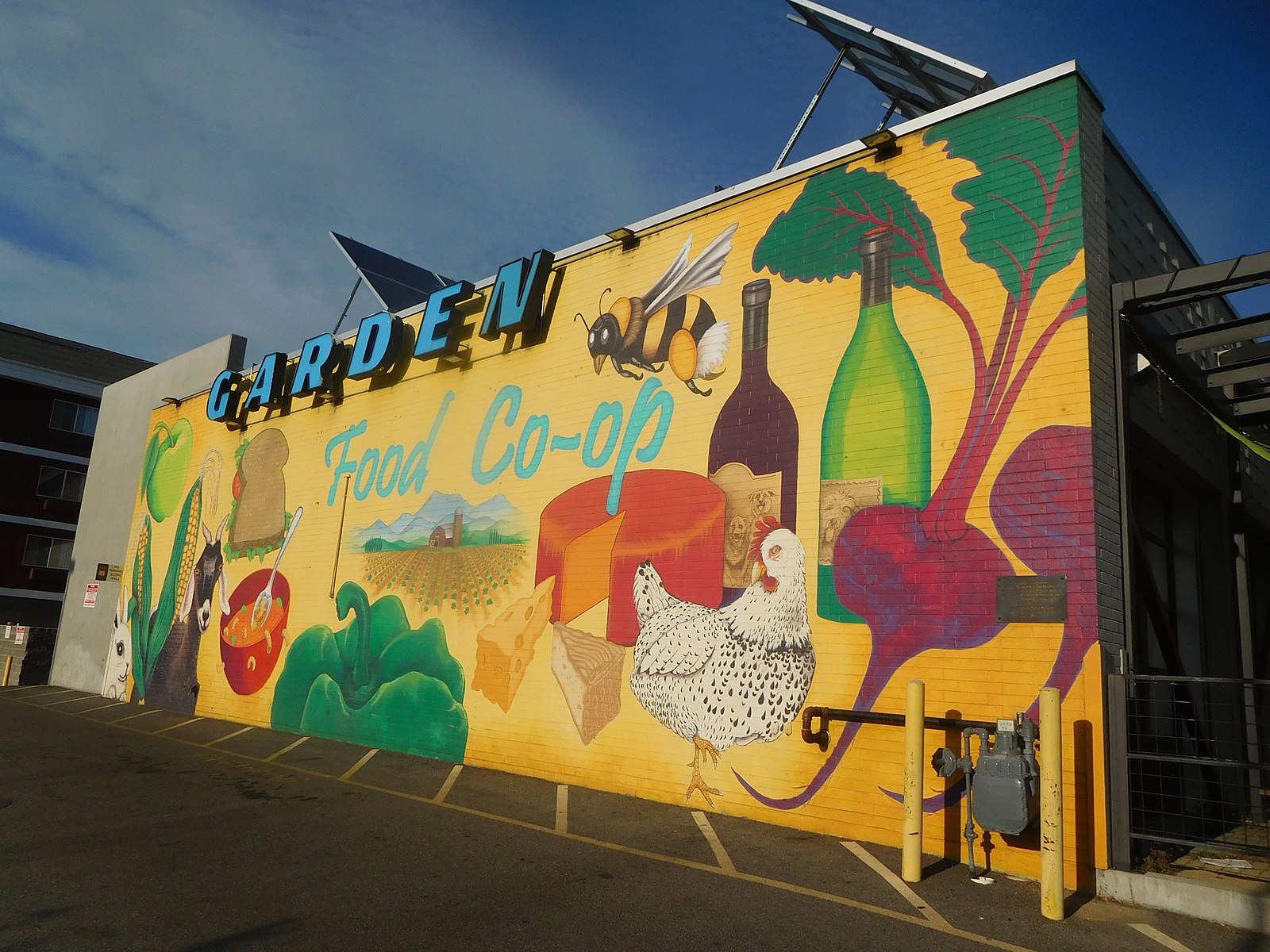Becoming Human: Modeling Food Cooperatives

Photo: Wikimedia Commons
In the winter and spring of 2022, five students from the University of Massachusetts Amherst researched the governance and labor practices of 17 food cooperatives across the United States. As part of the course Anthropology 341, Building Solidarity Economies, the “Modeling Food Cooperatives” pod worked in collaboration with both the Coalition of Worker Ownership and Power (COWOP) and especially with Common Share Food Cooperative in Amherst.
Focusing primarily on the few existing worker-owned and hybrid grocery cooperatives in the U.S., they created a report for Common Share designed to help advance Common Share’s efforts to build a hybrid food cooperative that will “provide diverse and nutritious local foods”, “build community with local farmers, producers, artists, BIPOC folks, houseless people, and any other” through a “hybrid model…[that would] allow for consumers as well as workers to have a voice in their operations”. The report reveals numerous practices and efforts to work against hierarchy, build community and power, and adopt anti-capitalist, anti-racist practices and formations through the governance, labor, and community practices and relations of the food cooperatives themselves, that Common Share might be inspired by, learn from, and/or implement.
The report, authored by Theo Eagle, Leah Cohen, Sofia Meadows-Muriel, Gabriel Futterman, Alexeya O’Brien, also links to additional, full length profiles of coops created through in-depth, qualitative interviews including The Peoples Food Cooperative in Kalamazoo, Michigan as well as Rainbow Grocery in San Francisco. Of the 17 food cooperatives that the authors examined, ‘six are hybrid, and seven are worker-owned, while four are member-owned with unique governance and practices. The size of the hybrid food cooperatives ranges from around 150 people involved to over 20,000 consumer-owners and 226 worker-owners (Weaver St. Market, the largest hybrid cooperative in the country). The size of the worker-owned food cooperatives range from eight worker-owners to over 250 worker-owners. The cooperatives examined were established as early as 1969 and as late as 2020. ‘
Each edition of Becoming Human will feature an article, reflection, interview, poetry, or other types of expression that engage with a creative community or municipal effort. These will include original features that discuss a local initiative and also stories about efforts in other parts of the world that we might learn from. The growing narratives, relations, and power from which other worlds are being assembled, maybe, can help reorient our hope and desire—and resignation—away from the death drive of white supremacist, heteronormative, capitalist modernity, and towards an open, uncharted horizon of radical egalitarianism and towards the reality that other worlds are in the making or already here. For the full introduction to Becoming Human that appeared in its inaugural column, look here. For a listing a previous columns, look here.
Acknowledgements: This column is in dialogue and solidarity with numerous collaborators and comrades including Vin Lyon-Callo, Meredith Degyansky, Penn Loh, Stephen Healy, students in Anthropology 340 – Other Economies are Possible, Anthropology 341 Building Solidarity Economies, Anthropology 597CC Community, Commons, Communism, and the pluriverse of world-making and world-defending efforts, movements, and projects in Massachusetts and around the worlds.
